Linda Lamone, Maryland’s long-serving elections director, announces retirement
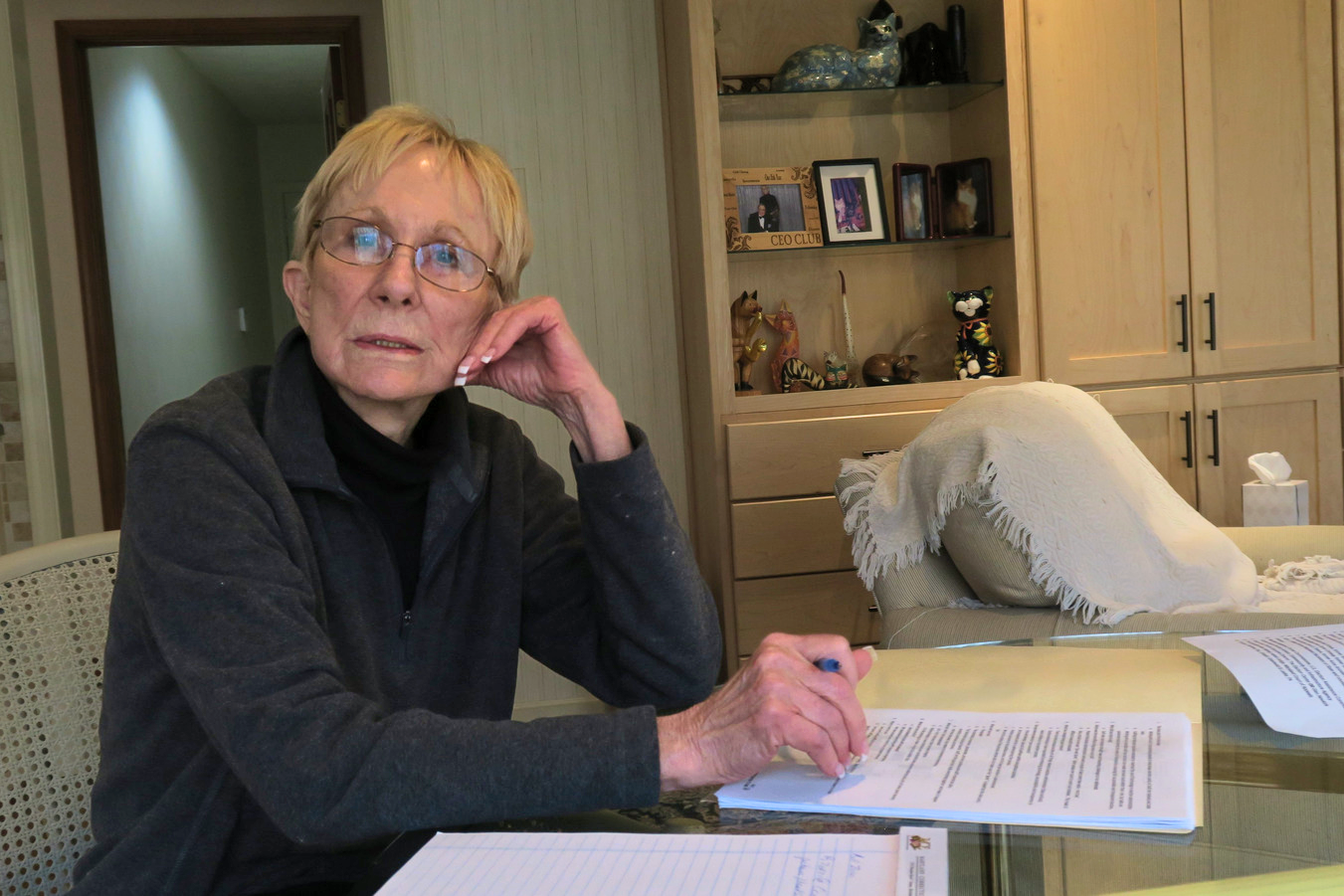
Linda H. Lamone, the occasionally controversial, at times embattled, but seemingly unflappable Maryland elections administrator — currently the second-longest-serving chief elections official in the nation — is stepping down from the post after more than 25 years.
Lamone, who turns 81 in July, told the five-member State Board of Elections at its regularly scheduled meeting Wednesday that she would be retiring sometime this summer, with the date yet to be determined, possibly Sept. 1.
“I love this job — it was not always easy — but through Republican and Democratic administrations, and through COVID, cyberthreats, redistricting, changing election dates, and changes in voting behavior, we delivered for the voters of Maryland,” she told the board, reading from a statement. “I am so very honored that I was entrusted to do something with my life that matters to American democracy.”
In an earlier interview, she said, “It’s time. It’s time,” repeating it as if to assure herself.
Credited with ushering Maryland’s elections system into the 21st century, Lamone has overseen the uniform modernization of voting machines statewide, centralization of control of local board operations, computerization of campaign finance reports and revamping of the state election code.
She is quick to credit her staff, pointing out that she could not have done any of it alone.
“I thank my staff every day, and when we talk to the local election people, we thank them every time we can, because they never get it from anywhere else,” she said.
Lamone has survived a partisan attempt to oust her in 2004 and since then proved many of her most vocal critics wrong — including the former state comptroller, who apologetically made good on a pledge to buy craft brew for her and her staff if he was wrong about his prediction of failures in the upcoming 2020 general election, held amid the pandemic.
“Look at the record,” said Brian E. Frosh (D), a former legislator and former Maryland attorney general. “You know, it’s not like she wasn’t tested, it wasn’t like they gave her a pass. People were firing shots at her every single election — and nothing, nothing stuck. I mean, she did a good job, she ran a good office. The elections were fair … they were accurate. Sometimes the Democrats won, sometimes the Republicans won.”
Less than two months ago, her husband of 53 years, Rudolph P. “Rudy” Lamone, the beloved former dean of the Robert H. Smith Business School at the University of Maryland, College Park, died unexpectedly. She made a point of mentioning him in her statement Wednesday to the election board.
“Behind each election official are family and friends that support them and allow them to do their difficult and time-consuming work,” she told the board, in a rare emotional moment. “For me, that person was my husband, Rudy. He was my faithful supporter and biggest cheerleader, and for that, I will always be grateful.”
While his death has left her reeling, Lamone said in an earlier interview that she had contacted state retirement officials last fall to begin the long process of leaving.
Lamone is also chair of the Maryland Attorney Grievance Commission, the panel that makes recommendations to the state’s highest court on sanctioning lawyers, based on its own investigations, but said she has no plans to retire from the unpaid board.
Earlier in her public service career, Lamone was an assistant attorney general assigned to a number of agencies, but perhaps best known in Annapolis as counsel to the General Assembly.
“She was sort of the go-to person. If you needed opinions, advice … Linda was the person who was asked to weigh in,” said Timothy F. Maloney, a former Democratic delegate from Prince George’s County now a private attorney. “Her judgment and legal skills were just superb.”
After the election of William Donald Schaefer as governor and Melvin A. “Mickey” Steinberg as lieutenant governor, she was hired for the second floor of the State House. There, she worked for Steinberg as chief legal counsel in the governor’s legislative office.
In those days, she was easily recognized in her hometown of Annapolis by her blonde bob haircut, driving in a yellow Jaguar sedan her husband had bought her.
Lamone left nearly two years later to be part of what was the first mega-lobbying firm in Annapolis with three other politically connected lawyers — Rifkin, Evans, Silver & Lamone. The firm, whose other principals were lobbyists Alan M. Rifkin, Gerard E. Evans and Edgar P. Silver, has since splintered.
She went into private practice on her own in 1990 and served on the trial team of Gov. Parris N. Glendening (D), when former Del. Ellen R. Sauerbrey lost to him by 5,993 votes and challenged the results, claiming unproven allegations of widespread fraud. It was that role that many believe factored into the effort to fire her as elections administrator in 2004 by Gov. Robert L. Ehrlich Jr. (R) — then the first Republican governor in 36 years — a scheme that was successfully beaten back in the courts.
A long career
When Lamone started at the State Board of Elections on July 1, 1997, the agency was known as the State Administrative Board of Election Laws (SABEL), located in the musty, dusty and dilapidated old armory building on Bladen Street in Annapolis, the site of the new Miller Senate Office Building.
Campaign finance records then were all on paper, stuffed in more than 60 five-drawer file cabinets and random cardboard boxes lining the armory walls. Then there were roughly 1,200 campaign accounts, including 250 political action committees — which seemed an overwhelming number of accounts to keep track of, though just a fraction of what the agency monitors now by computer.
The state’s campaign finance bible — the totality of everything known about Maryland’s arcane law — was kept in two black binders on the desk of the then-director of SABEL’s campaign finance division.
The state election board met in the armory, candidates registered for statewide office there, treasurers filed campaign finance reports there, votes were tallied and certified there, campaign literature, signs and stickers were inspected for authority lines there. The state’s entire machinery to facilitate exercising the franchise was headquartered there, in the warren of makeshift offices, temporary folding tables and stacks of campaign finance reports.
SABEL was created in 1969 to assist the autonomous local boards with elections, voting and voter registration. It also took over the function of collecting, reviewing and auditing statements of campaign expenses, which had been under the purview of the Maryland Secretary of State.
Lamone was named to head the election agency by Governor Glendening in 1997, but then reappointed by the five-member election board two years later, after the state law changed to take the appointment out of the hands of Maryland’s governors.
That, however, did not keep the governor’s fingers out of the process. In 2004, Ehrlich had made clear that he wanted to replace her, and the state board voted behind closed doors to fire her. The Ehrlich effort was aided by Gene M. Raynor, a Democrat, former Baltimore election official and close associate of then-Comptroller Schaefer, who had been named to the panel.
She successfully challenged the push, which ended in a mediation to resolve the dispute.
Additionally, former Senate President Thomas V. Mike Miller Jr. (D-Prince George’s) and former House Speaker Michael E. Busch (D-Anne Arundel), passed legislation, now known colloquially as the “Linda Lamone for Life Act,” that limits the ability to remove the administrator.
Under the law, removal now requires approval of four of the five election board members — the governor’s party controls three seats — and it would not become official until the Senate confirms a replacement. Legislation to undo the law is now pending in the General Assembly.
Managing crises
While a lightning rod of sorts over the years, Lamone is held in high regard by many, including the former chairman of the state Board of Elections, Michael R. Cogan, a Republican appointed by Gov. Larry Hogan (R).
At the February 11, 2021, board meeting — his final one — Cogan read a statement into the record after the 2020 general election, which had been anticipated to be problematic, given complaints about the June primary election, run at the height of the COVID-19 pandemic.
Following the primary, there were calls for Lamone to quit or be fired, but the general election proved to be far more successful than expected.
“I was, at all times, utterly confident that these would not be perfect elections. I was also, at all times, utterly confident that our state and local boards could accomplish the mission,” Cogan read.
“I will at some point, move on from the State Board of Elections, and if, at some future time, I end up as the chairman of the board of directors of an organization, and that organization finds itself in a crisis situation during which their normal procedures are scrambled, their workspaces are evacuated, [they have] little control over the crisis, no control over the timing of events, but subject to severe time constraints, and they must accomplish their mission, it is my hope that the organization would be led by someone like Linda Lamone and staffed by people like those at our local and State Board of Elections,” he read.
After the successful 2020 general election, then-Comptroller Peter V.R. Franchot (D), performed a very public mea culpa at a virtual meeting of the Board of Public Works, the three-person panel he presided over with Governor Hogan and then-Treasurer Nancy K. Kopp (D).
Franchot earlier had called for Lamone’s resignation, but after the 2020 general election went off with few glitches despite predictions of disaster, he was chastened. Making good on his offer to provide beer to Lamone and staff if the election was flawless, he lifted bottles and cans of craft beers from the Eastern Shore in front of his camera.
“I will deliver that to Linda Lamone with my apologies,” he declared.
She is well known on the national elections stage, both at the National Association of State Election Directors and the U.S. Election Assistance Commission, an independent bipartisan panel charged with assisting states with establishing standards set in the Help America Vote Act.
“I think one of the things that I know and certainly always appreciated, and I think others did, was with Linda, you knew where you stood. She’d shoot you straight on it, and she’d tell you how she saw it,” said Benjamin W. Hovland (D), an EAC commissioner. “I think that’s a rare quality, and I think it’s an important one.”
Lamone does have a no-nonsense demeanor, yet an engaging sense of humor beneath it, punctuating a point at times with a deep throaty laugh from a lifetime of smoking.
She can be tough and has been called “aloof” — not exactly “warm and fuzzy,” in her own words — but approachable. She sometimes acknowledges problems by quietly blinking at the complainant through her glasses before writing them down for possible action.
“I’ve just always felt like in my role I need to be as, what’s the right word, neutral as possible and not show favoritism towards one group or another. Is that perhaps being aloof? I don’t know,” Lamone said.
“I can tell you from the day I took this oath of office for this job, I have not participated in any partisan politics. Period,” she said. “I liken it to when I was in the office of counsel to the General Assembly: It didn’t matter who asked the question. Whether it was a Democrat or Republican member of the General Assembly, it was our duty to provide them the best legal advice…. I strongly believe that’s what you do when you’re running elections. It doesn’t matter who’s running; it matters that you do the right thing.”
At the Wednesday election board meeting, Lamone thanked her “incredible staff … who are passionate about serving the voters of Maryland.” She specifically cited Nikki Charlson, the state’s deputy administrator “for being the linchpin of this office.”
Board members, in turn, thanked Lamone for her service, among them Severn E. S. Miller (R), who ironically had worked on the Ehrlich re-election campaign in 2006.
“Since that time, you know, I’ve seen what you do, I’ve seen how you operate. The biggest testament to your capacity and excellence, basically, is your staff,” Miller said. “You’re leaving the SBE in terrific condition, with really super people to accomplish all the things the board needs to do.”
This breaking news story was updated at 7:30 p.m.
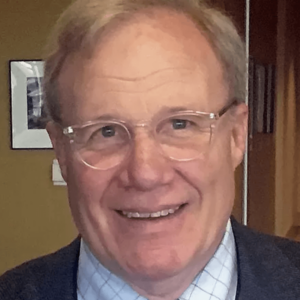
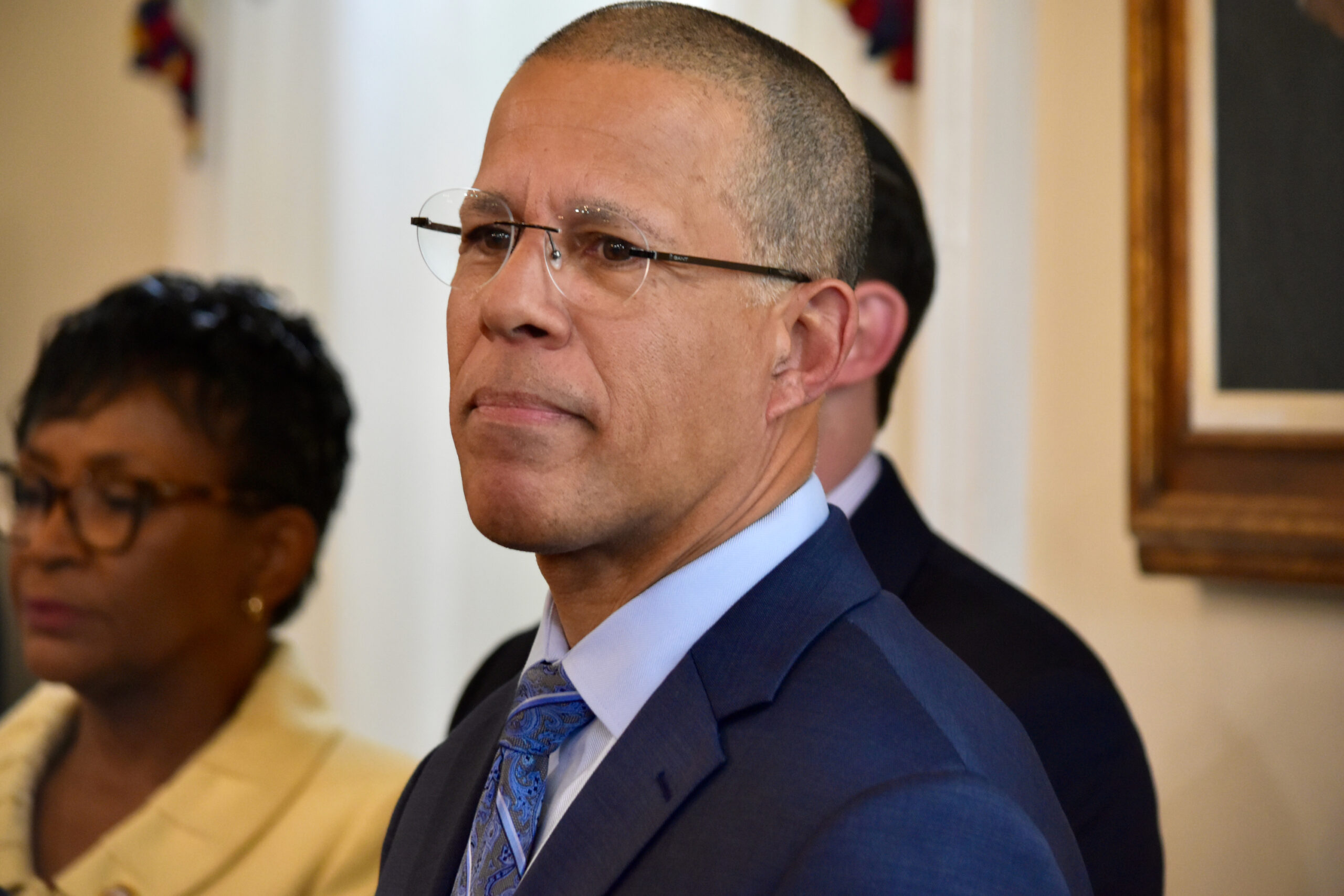
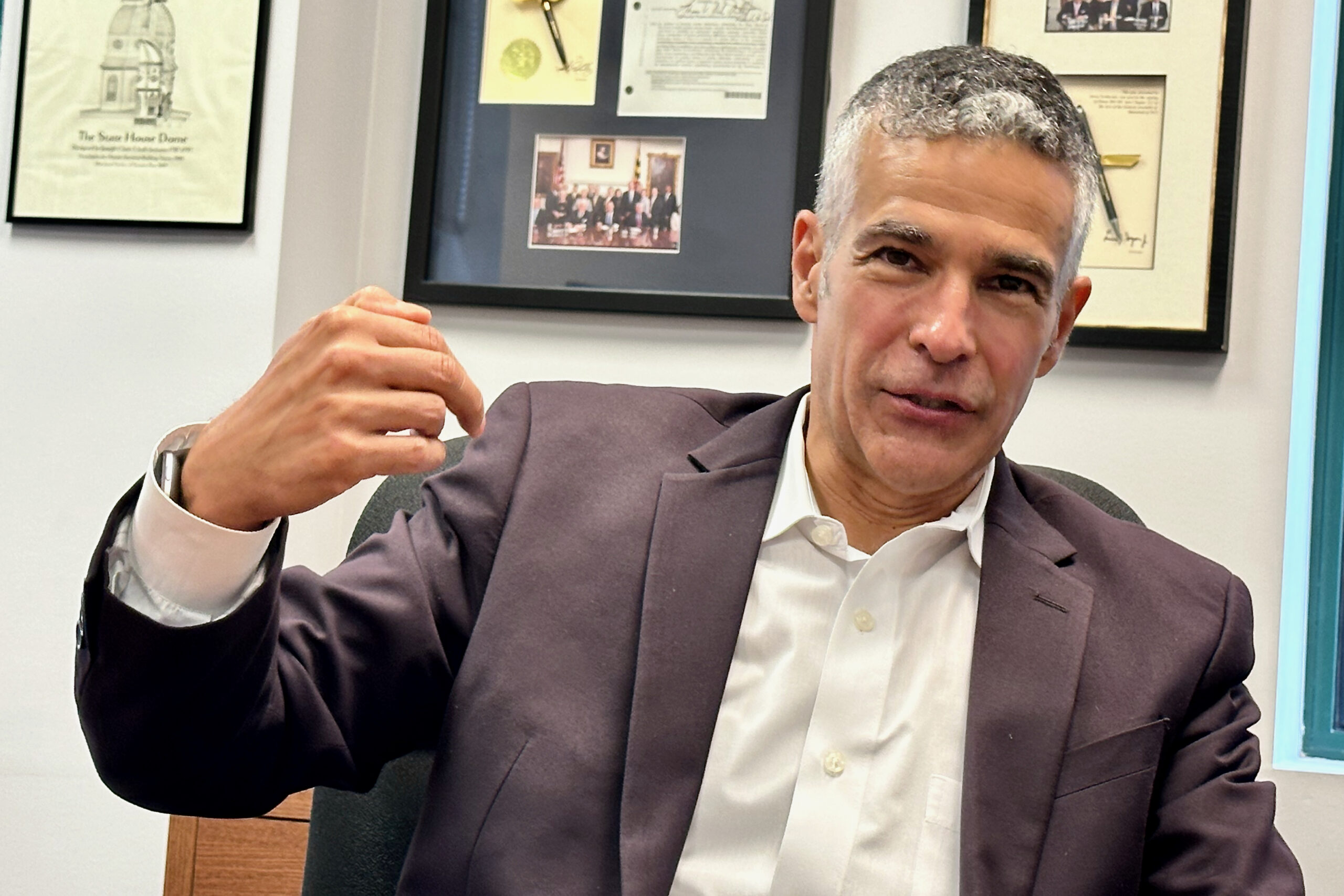
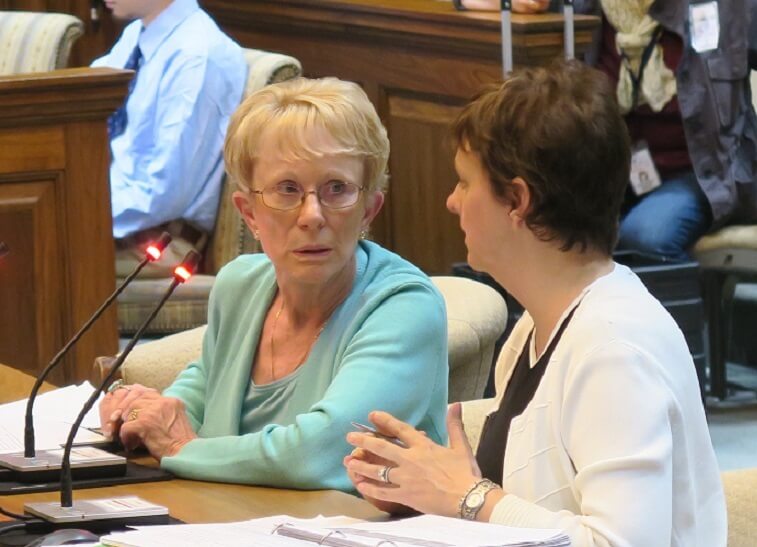
 Creative Commons Attribution
Creative Commons Attribution